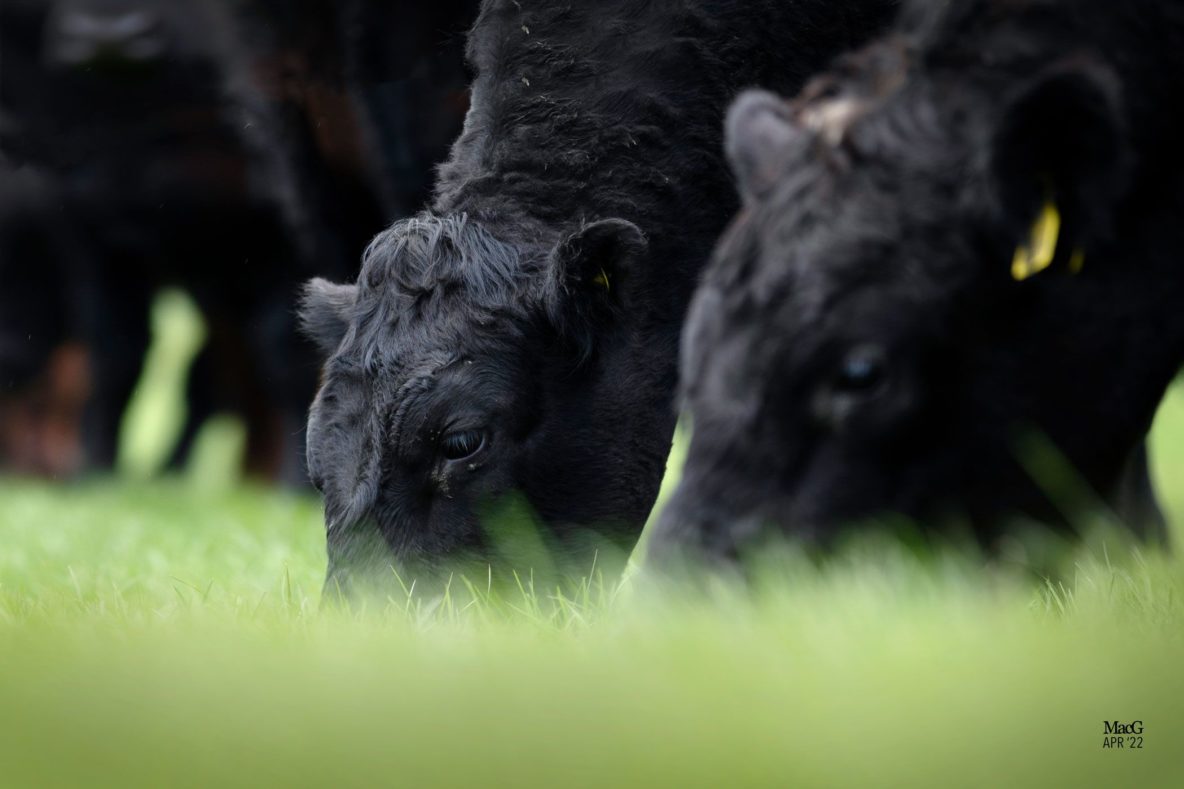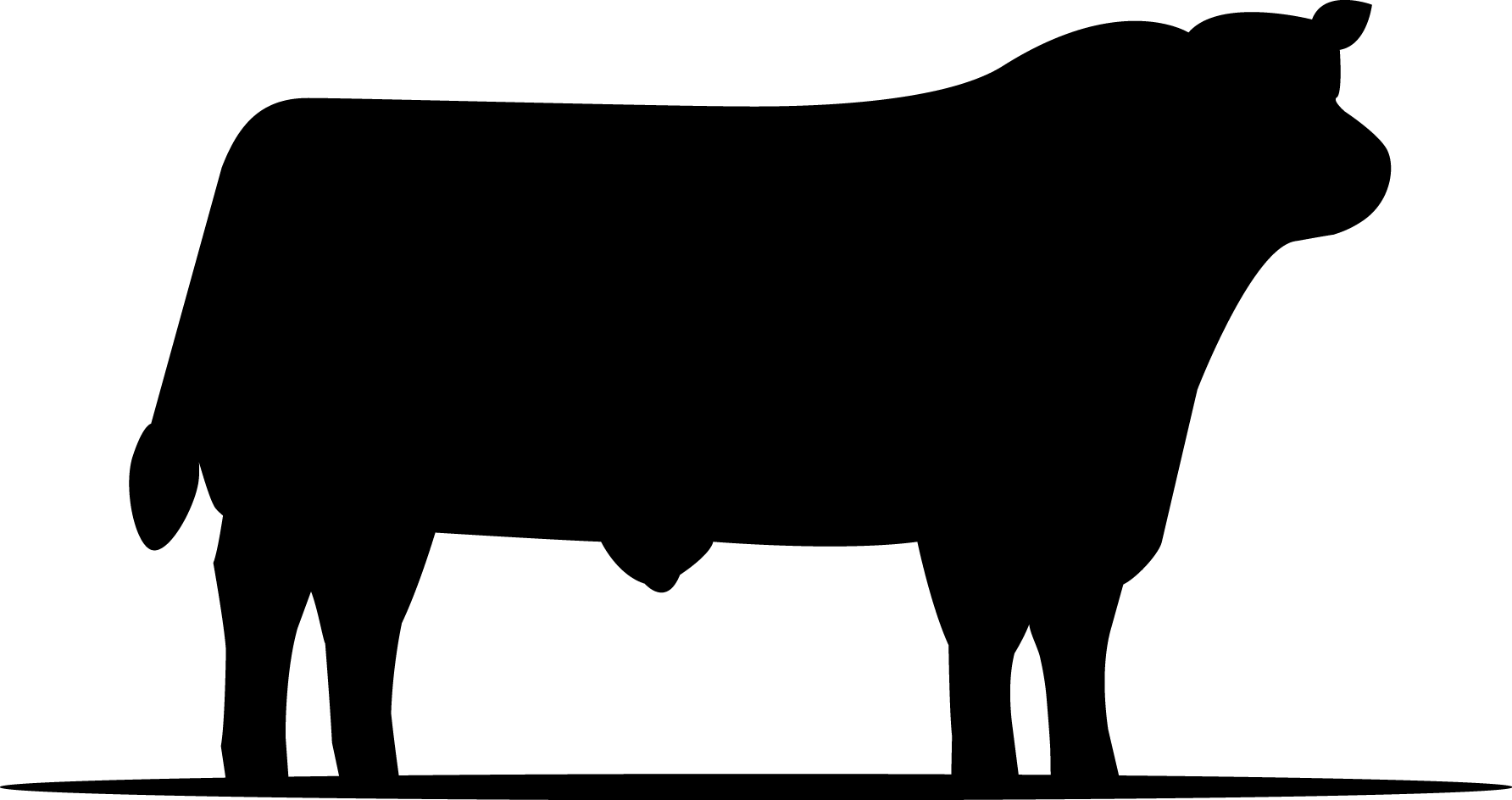What does efficient beef production really mean? There are many definitions of efficient production, such as improved profitability or lower emissions or something else altogether.
Robert Gilchrist, CEO of the Aberdeen-Angus Cattle Society says that UK beef production can be profitable and sustainable, making a positive contribution to the farm and the environment’s bottom lines. One does not have to be sacrificed for the other when the correct breed and system are working together.
There is significant negative press around beef production and the environment. However, much of this ignores the benefits that the sector provides to the environment.
Environmental impact of UK beef production
A key weakness in the current carbon accounting methodology is that it misses much of the potential carbon sequestration of grazed grass. It ignores the fact that due to the means by which methane breaks down in the atmosphere, the grass that a cow is eating today has recycled the methane that her grandmother produced 10 years previously. Biogenic methane is part of the carbon cycle and is a stable system. Fossil fuel methane however, is additive and increases the levels in the environment with no consequent sequestration and yet cattle emissions are lumped in with this in the current calculations.
Most of the numbers that are used to publicise the environmental impact of beef production are global numbers, but carbon footprints vary significantly across the globe. UK beef carbon footprints average 48 kg CO2 -eq, half of the global average of 99 kg CO2 –eq.
When it comes to reducing the environmental impact of beef production, there are a couple of things to consider; the breed of the animal being produced and the system it is best suited to. Matching them leads to producing beef as efficiently as possible.
Selecting a beef breed to benefit the environment
While continental breeds were historically a large proportion of UK beef production, the last few years have seen a resurgence in native breeds. 2021 saw Aberdeen-Angus becoming the largest number of BCMS registrations of any beef breed in 2021.
Aberdeen-Angus ticks a lot of positive environmental and financial boxes from key maternal traits, through fertility and ultimately to being easy fleshing, making them a great fit for all production systems. This means the breed delivers a good financial return alongside providing environmental benefits, that’s paired with their ability to utilise grass and forage efficiently, resulting in a reduced reliance on purchased feeds. It is also a well-known brand for consumers, leading to strong supply chain demand.
Efficient beef production
The variation of carbon emissions across the UK is down to the system and its relative efficiency. Feed digestion contributes 40% of beef emissions, with fertiliser and manure contributing 28%, meaning these are key factors to prioritise when reducing emissions in beef systems.
Feeding system
Maximising the utilisation of forage in in beef diets leads to a reduction in concentrate use. Silage costs around half as much as concentrates and grazed grass costs around half as much as silage. Whether by managing grazing to maintain grass quality or cutting silages earlier forage is the cornerstone of efficient, environmentally friendly beef production.
Should concentrate supplementation be required home grown proteins rather than imported feeds also ease the associated carbon footprint and reduce emissions.
A report released in April 2022 from CIEL – one of the world’s foremost farm animal research alliances – shows improving grazing management has the capability to reduce beef emissions by 8%.
Another point that often slips under the radar is the fact that ruminants grazing grassland is necessary to sequester carbon. Adaptive grazing strategies are key to returning carbon to our soils over the next 50 years. Raising the organic matter level in the top six inches of soil by just 1% per hectare would mean the removal of 35.8 tonnes of CO2 from the atmosphere*.
Fertility
Fertility is instrumental in the reduction of greenhouse gas emissions from beef production. Calving age, calving interval and calves reared are the most influential metrics. The CIEL report indicates that by reducing age at first calving from three years to two years, emissions can be reduced by 6%[4]. Another factor to consider is calving interval. Cows that experience a difficult calving take longer to get back in calf meaning an unproductive period whilst emissions continue to be emitted. Easy calving Aberdeen-Angus are a key to tackling this
Efficient finishing
Daily liveweight gain (DLWG) and subsequently, finishing age also influence beef cattle emissions. Grazing management makes it possible to achieve a healthy DLWG and with the Aberdeen-Angus being an easy fleshing breed, they can be finished successfully off grass.
To help cattle achieve the target weight at the target age as efficiently as possible, DLWG needs to be monitored, but we know it is possible to achieve specification and receive the premium, using a low input, predominately grass based diet.
Fertiliser and manure
Fertiliser and manure contribute to over a quarter of the emissions produced on beef farms and therefore it’s important to consider how they are managed.
Reseeding gives an opportunity to consider the grass leys being sown and how they work in the farming system. Clover, whilst by no means new or revolutionary is often overlooked in grass mixes. Not only is it of great feed value contributing a high level of both energy and protein to the diet, but the nitrogen fixing also leads to it ultimately reducing the amount of fertiliser required to grow grass.
Combining the optimum farm system with the optimum breed, it is possible to produce beef in a way that is efficient. To find out more about Aberdeen-Angus, please visit https://www.aberdeen-angus.co.uk/the-breed/.




